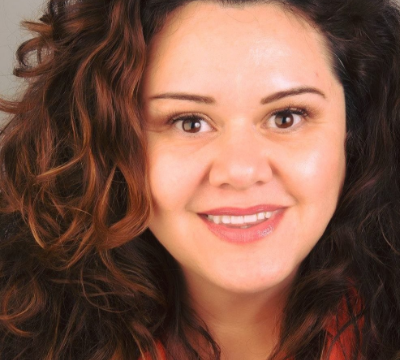By Paula Gomez-Stordy
I was humbled to receive the Massachusetts Women of Color Network Founders Award, for creating the Massachusetts Women of Color Network alongside five other women of color (WOC) leaders from Massachusetts. It sits on my desk as a reminder of what has been done and the work ahead of us.
Today, the Massachusetts Women of Color Network is a thriving organization that supports the leadership of WOC across the state. It started in 2010, at the national WOC Conference. There, WOC lined up at microphones to share their experiences of mistreatment, isolation, surveillance, targeting, and firing while working in the gender-based violence (GBV) field. It was painful to bear witness and recount my own experiences of institutional microaggression and oppression.
My future co-founders and I returned to Massachusetts with heightened awareness and began to meet monthly to examine the lack of WOC representation in leadership roles. We decided to create spaces for WOC in the GBV field across the state by creating workshops on career development. An advocate emailed us to say that she applied the skills she learned at our workshop and negotiated a ten-thousand-dollar salary increase to compensate for her experience, education, language, and clinical skills. We expanded our group and planned our first statewide WOC conference. It was a success and we continued to expand. Eventually, I stepped down.
Still, I continue to support WOC’s leadership through research. A colleague and I surveyed fifty-five WOC leaders across the country to identify the factors that support the leadership of WOC. Here’s what we found:
- 85% identified mentoring as the most beneficial
- Faith serves as a spiritual source of resilience and social capital; culturally specific faith institutions serve as a support system of orientation, acculturation, and integration for newly arrived immigrants
- There’s little research on WOC leadership. Instead, we found articles on Black men’s or white women’s leadership. This crystallized for us the need to center the intersectional experiences of WOC facing sexism, racism, and other forms of oppression based on their identity
To address these issues and the many more WOC face in and out of the GBV field, I advise aspiring leaders to:
- Reflect: Take time to reflect and listen to yourself and your community’s experiences. We are often trapped in the busyness of work and home without a moment to stop to understand intersecting issues and identify solutions. But don’t just take it to me – listen to esteemed Brazilian educator and philosopher Paulo Freire, who advocated for Conscientizacao or conscience raising/making time for quietness. That’s how you can hear the answers that are already within you
- Find your people: Creating change takes time and it’s challenging. It is also almost impossible to do alone. Who has similar experiences, beliefs, motivation, and vision? Connect with them and your energy and solutions will multiply
- Be patient and focused: With age and experience, I’ve learned that institutional and social change takes time but is achievable. Delays and detours are discouraging but stay focused and committed. A delay can be a strategy to prevent momentum; like a defense attorney delaying court dates in hopes the victim won’t go forward in a criminal case. So find solutions to those delays and achieve equity and justice. It will happen
- Don’t take things personally: Even when things are directed at you, don’t take them personally. You don’t know how others interpret your words, actions, or position. You also don’t know people’s histories. Listen respectfully and objectfully. There is usually a bigger reason than someone not liking you (although sometimes they may not like you, and that’s ok). Continue to do what is right and ethical
- Keep going: Even when there is a backlash, keep going. A wise friend and mentor once told me that backlash is a sign you are on the right track. If your actions didn’t impact real change, there would be no backlash because you would not be threatening the status quo
Rest: We need you. We devote ourselves to the cause by choosing careers in the field, volunteering, serving on boards, watching movies or documentaries, and reading articles and books on the cause. But, how are you? Do you sleep, eat, move, hydrate, connect, and play? Your sacrifices alone will not bring justice but can make you sick and unable to support your community. ¡Mij@, por favor, cuídate! Your well-being is our collective well-being.
